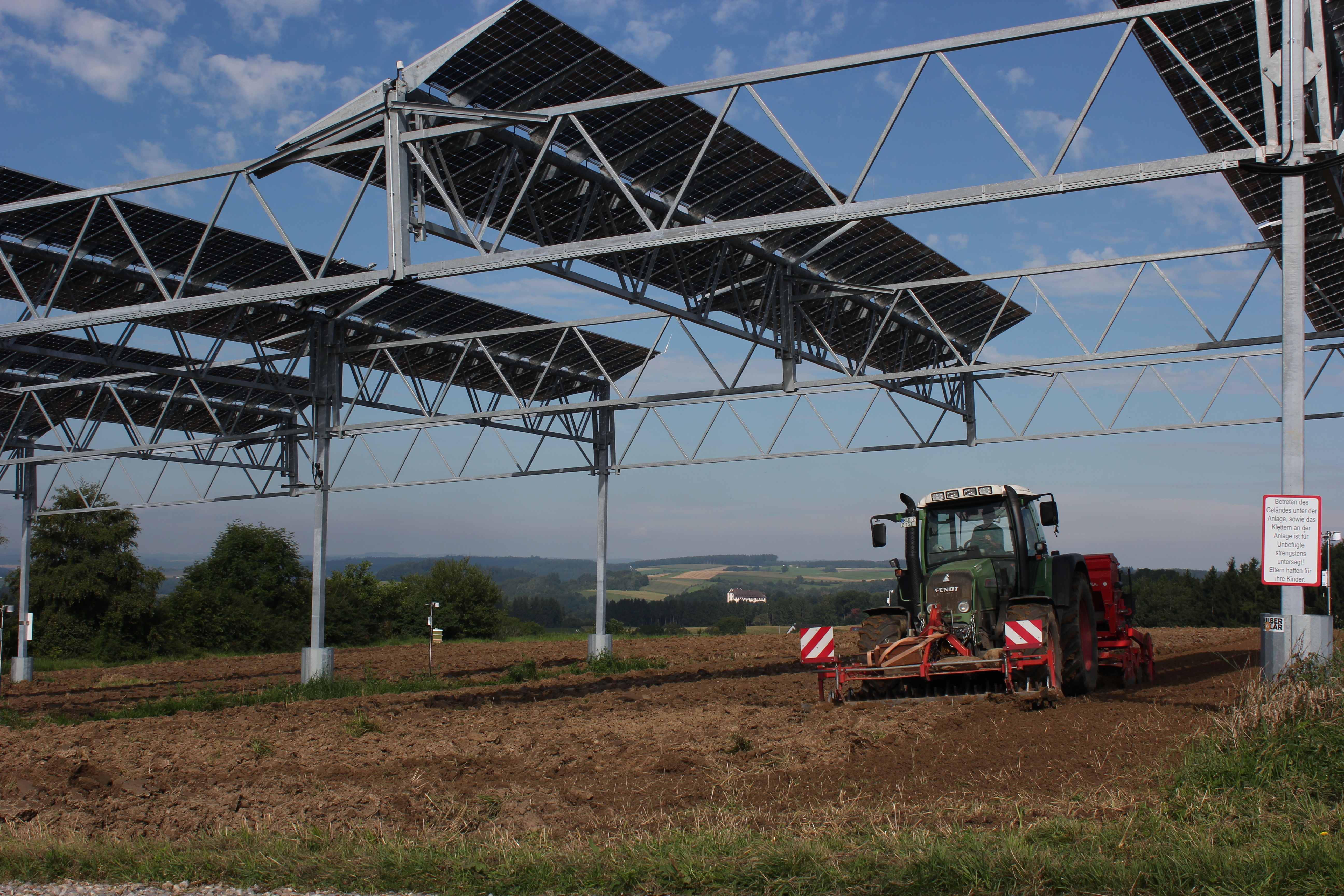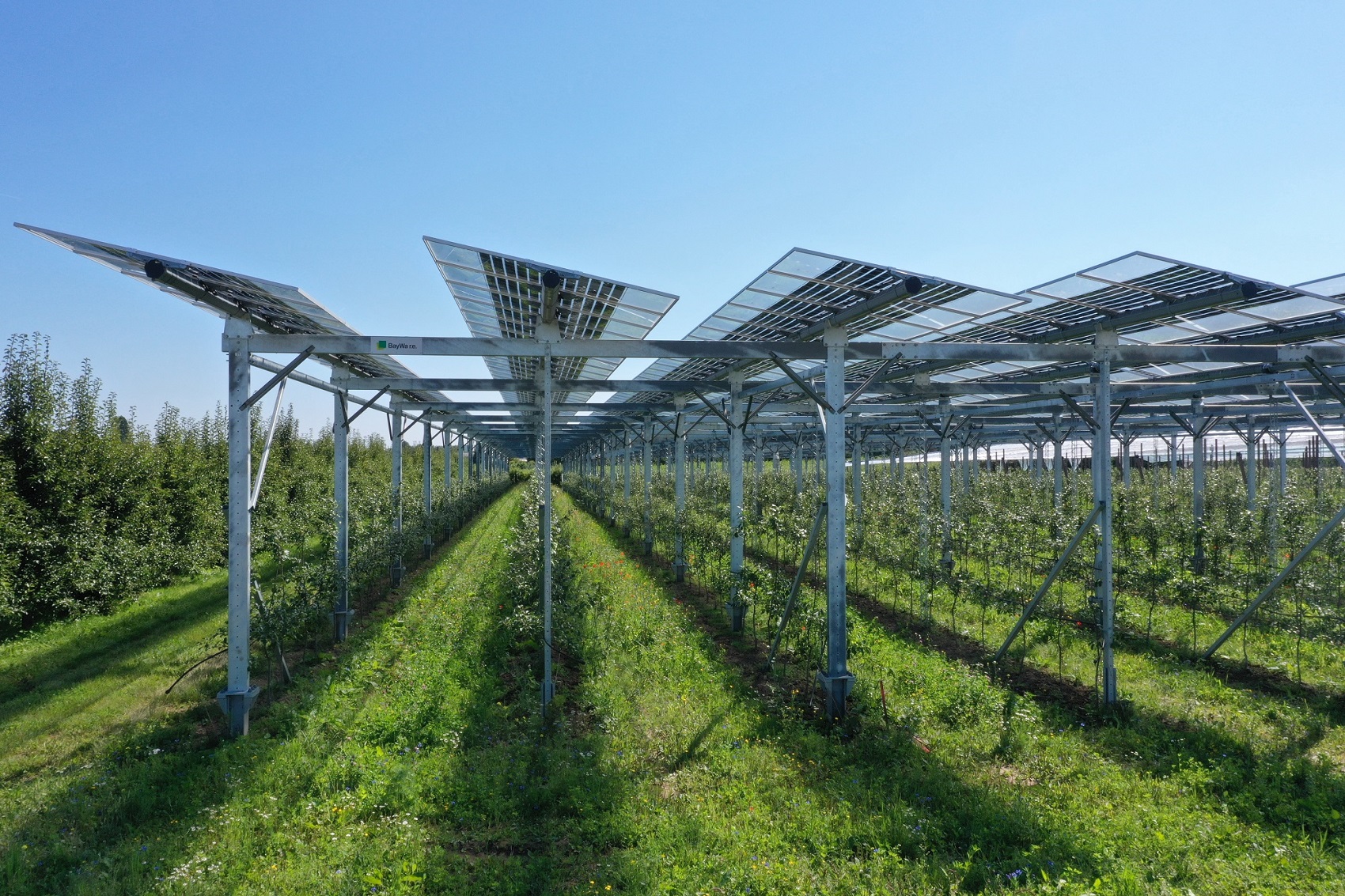| Duration: | 07/2022 - 04/2028 |
| Contracting Authority/ Sponsors: | Federal Ministry of Education and Research (BMBF) |
| Project Partners: | Leibniz-Zentrum für Agrarlandschaftsforschung (ZALF), Universität Hohenheim - Institut für Landschafts- und Pflanzenökologie, Elysium Solar GmbH, Becker Büttner Held Rechtsanwälte Wirtschaftsprüfer Steuerberater PartGmbB, Stiftung Umweltenergierecht, Bosch & Partner GmbH, Hochschule Kehl. The two associated farms Fabian Karthaus and Hofgemeinschaft Heggelbach contribute their experience from practical prototype use to the project. |
| Website: | https://agri-pv.org/de/ |
| Project Focus: | |
SynAgri-PV – Synergetic Integration of Photovoltaics in Agriculture as a Contribution to a successful Energy Transition
Networking and Support of the Market Ramp-Up of Agri-PV in Germany


The research project »SynAgri-PV: Synergetic Integration of Photovoltaics into Agriculture as a Contribution to a Successful Energy Turnaround - Networking and Accompanying the Market Take-off of agrivoltaics in Germany« pursues the overarching goal of describing and evaluating central technical, legal, economic and social framework conditions and prerequisites for the establishment of agrivoltaics on the German market and developing proposals for a broad establishment of agrivoltaics.
Coordinated by Fraunhofer ISE and the Leibniz Center for Agricultural Landscape Research (ZALF), nine partners from research, practice and industry are working together to develop a roadmap of concrete implementation for the use of agrivoltaics in Germany.
Land use competitions have intensified in recent decades due to the growing demand for energy, food, water and other natural resources. Land use changes and land sealing have consequences for climate, ecosystems, and biodiversity, as well as for local populations and economies.
Agrivoltaics represents an opportunity for agriculture and the energy transition, as an area can be used for agricultural food and feed production as well as for solar power generation. The first systems are currently being used in Germany, especially for special crops such as fruit and vegetables. Here, agrivoltaics can provide additional protection against hail, frost and drought damage. Agrivoltaics systems are becoming increasingly attractive for agriculture because they can keep domestic agriculture competitive with the international market and provide farmers with additional income. At the same time, they can drive the expansion of renewable energy, reduce pressure on scarce land, and increase the resilience of different cropping systems.
Despite this starting position, only very few, small-scale projects have been realized in Germany to date. The reasons for this lie in particular in the legal framework to date, including inadequate incentive systems and complex approval processes. In addition, concerns arise, for example, regarding the acceptance of the local population and the attractiveness of the landscape. However, the climate crisis requires a rapid, parallel market ramp-up of agrivoltaics.
Many disciplines, one goal: making agrivoltaics marketable.
The project will evaluate the scientific, legal, economic and social status of agrivoltaics in Germany. The aim is to develop an evidence-based social model for the expansion of agrivoltaics in Germany, including as many relevant stakeholders as possible, to identify the need for action to implement this model, to outline possible solutions and to identify further fields of research. To this end, ongoing pilot plants will be supported and networked, participation formats created, and the findings evaluated, processed and made available to the general public and politicians. For this purpose, a guideline is being developed and a platform is being expanded.